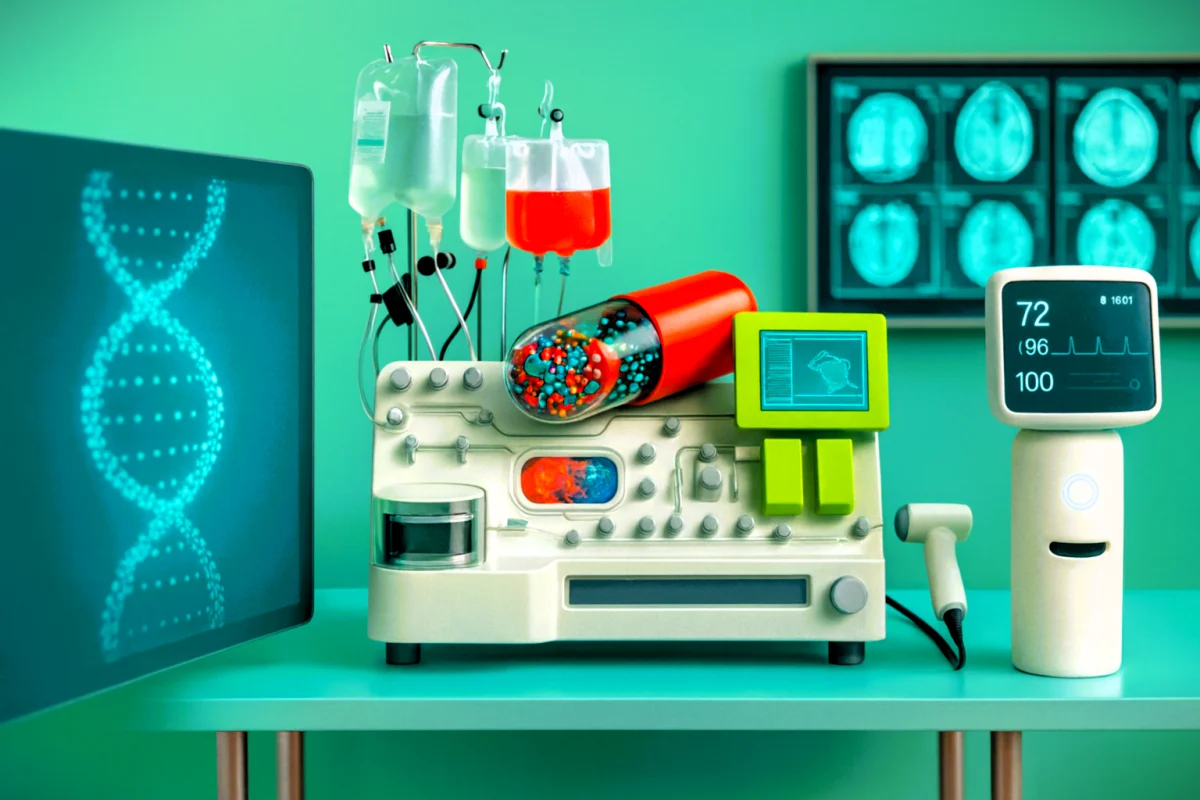Science of Health: Gene Therapy, Nanotechnology, and AI Diagnostics
Health science has been evolving at an unprecedented pace in recent years. Innovative approaches such as gene therapy, nanotechnology, and AI diagnostics are already transforming the medical field. Together, these technologies create a new system where patient treatment is more personalized, accurate, and effective.

Gene Therapy — Treating at the DNA Level
Gene therapy is a revolutionary branch of medicine aimed at treating diseases by altering or correcting genetic codes. Scientists are actively researching solutions for hereditary diseases such as muscular dystrophy, cystic fibrosis, and certain forms of cancer.
This method allows the replacement of defective genes with healthy copies or the introduction of targeted changes into the genome. While still in development, it offers hope to millions that future generations may be safer from genetic diseases.
Nanotechnology — Medicine at the Molecular Level
Nanotechnology is applied in both diagnostics and treatment. Nanoparticles are so small they can target specific cells. For instance, they deliver drugs directly to affected areas, reducing side effects and increasing efficiency.
Additionally, nanosensors can detect biomarkers in the blood, enabling the identification of diseases at an early stage. This is especially valuable in oncology, where early cancer detection significantly increases survival rates.
AI Diagnostics — Artificial Intelligence as a Doctor’s Assistant
Artificial intelligence is playing an increasingly vital role in medicine. AI systems use massive datasets and algorithms to evaluate patient tests, medical images, and health histories. For example, AI diagnostics is already being used in radiology to spot details that human eyes may miss.
AI assists doctors in decision-making, reduces diagnostic errors, and speeds up medical procedures. In the near future, such systems are likely to become a standard part of everyday medical practice.
Advantages
- Personalization — Treatments tailored to each individual patient.
- Accurate diagnostics — Nanosensors and AI minimize the risk of errors.
- Efficiency — Medications are delivered precisely where needed.
- Prevention — Early detection prevents disease progression.
Challenges
Despite rapid progress, challenges remain. Ethical concerns continue to surround gene therapy: is it right to alter the human genome? Cybersecurity and data privacy are also critical, since AI diagnostics rely heavily on sensitive personal data. With nanotechnology, more research is needed to fully understand long-term impacts.
Conclusion
The science of health is now exploring areas that once existed only in science fiction. Gene therapy, nanotechnology, and AI diagnostics are creating a new reality where human life can become longer, safer, and of higher quality. 👉 Do you think science will one day completely eliminate genetic and life-threatening diseases?
✍ Article Author
- Registered: 26 July 2025, 15:34




 Silent Cat 🐾
Silent Cat 🐾